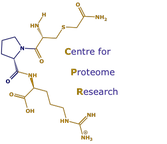New collaboration with Brazil
The proposal is focused on Schistosomiasis, a neglected tropical disease that remains an important public health problem in many parts of Brazil. It is a water-borne, caused by parasitic worms that infect humans by skin penetration and migrate to reside in the hepatic-portal system; here they produce eggs that generate a plethora of pathological conditions. Treatment with the one available drug does not prevent reinfection so an effective vaccine would be an invaluable control tool. However, despite decades of research, progress towards this goal has been painfully slow. Sequencing of the transcriptome (2003) and genome (2009) have facilitated post-genomic initiatives to accelerate the search for vaccine candidates. Proteomic analysis of the worm´s surface has pinpointed some promising molecules and we have recently focused our attention on its blood-feeding mechanism as a source of potential targets. The inventory of novel proteins we expect to identify and quantitate will kick-start a new round of vaccine testing.
As part of the collaboration, members of CPR will deliver an advanced training course in proteomics.
As part of the collaboration, members of CPR will deliver an advanced training course in proteomics.
